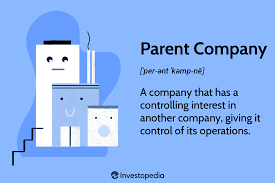
The Importance of Company Culture in Driving Success
In today’s competitive business landscape, the role of company culture cannot be overstated. A strong and positive company culture is not just a nice-to-have; it is a critical factor in driving success and achieving sustainable growth.
Company culture encompasses the values, beliefs, attitudes, and behaviours that define how a company operates. It influences how employees interact with each other, how they approach their work, and ultimately, how they contribute to the overall success of the organisation.
One of the key benefits of a strong company culture is its ability to attract and retain top talent. Employees are more likely to be engaged and motivated when they feel aligned with the values and mission of the company. This leads to higher productivity, lower turnover rates, and ultimately, better business outcomes.
Moreover, a positive company culture fosters innovation and creativity. When employees feel empowered to share ideas and take risks without fear of retribution, they are more likely to think outside the box and come up with innovative solutions to challenges.
Building a strong company culture requires commitment from leadership at all levels. It involves creating a supportive environment where diversity is celebrated, open communication is encouraged, and feedback is valued. By investing in your company’s culture, you are investing in its long-term success.
In conclusion, company culture plays a crucial role in driving success by influencing employee engagement, retention, innovation, and overall performance. As businesses navigate an increasingly complex and competitive landscape, those that prioritise building a positive and inclusive culture will be best positioned for sustained growth and prosperity.
Six Key Strategies for Fostering a Thriving Business Environment
- Ensure clear communication within the company.
- Set specific and achievable goals for the team.
- Encourage teamwork and collaboration among employees.
- Provide regular training and development opportunities for staff.
- Maintain a positive work culture that values diversity and inclusion.
- Regularly review and adapt business strategies to stay competitive.
Ensure clear communication within the company.
Ensuring clear communication within the company is paramount to fostering a cohesive and efficient work environment. When communication channels are open and transparent, employees are better equipped to collaborate effectively, share ideas, and align their efforts towards common goals. Clear communication helps to prevent misunderstandings, minimises errors, and promotes a sense of unity among team members. By prioritising clear communication practices, organisations can enhance productivity, boost morale, and ultimately drive success across all levels of the company.
Set specific and achievable goals for the team.
Setting specific and achievable goals for a team is paramount to driving success and fostering a culture of accountability and motivation. By clearly outlining objectives that are measurable and realistic, team members are able to focus their efforts, track progress, and celebrate achievements along the way. This approach not only provides direction and clarity but also empowers individuals to work collaboratively towards a common purpose, ultimately leading to increased productivity and success for the company as a whole.
Encourage teamwork and collaboration among employees.
Encouraging teamwork and collaboration among employees is essential for fostering a cohesive and productive work environment. When team members work together towards a common goal, they can leverage each other’s strengths, share knowledge and expertise, and ultimately achieve better results than they could individually. Collaboration not only enhances creativity and problem-solving but also builds trust and camaraderie among colleagues, leading to increased job satisfaction and a stronger sense of belonging within the company. By promoting a culture of teamwork, organisations can unlock the full potential of their workforce and drive collective success.
Provide regular training and development opportunities for staff.
Providing regular training and development opportunities for staff is essential for fostering a culture of continuous learning and growth within a company. By investing in the skills and knowledge of employees, not only does the organisation benefit from a more skilled workforce, but employees also feel valued and motivated to excel in their roles. Ongoing training helps employees stay current with industry trends, enhances their job performance, and ultimately contributes to the overall success of the company. It is a proactive approach that demonstrates a commitment to employee development and long-term organisational success.
Maintain a positive work culture that values diversity and inclusion.
Maintaining a positive work culture that values diversity and inclusion is essential for fostering a thriving and innovative workplace environment. By embracing different perspectives, backgrounds, and experiences, companies can create a more dynamic and inclusive atmosphere where all employees feel respected, heard, and valued. This not only leads to higher employee morale and engagement but also sparks creativity, collaboration, and ultimately drives better business results. Embracing diversity and inclusion is not just a moral imperative; it is a strategic advantage that can propel a company towards greater success and sustainability in today’s diverse global marketplace.
Regularly review and adapt business strategies to stay competitive.
To stay competitive in today’s dynamic business environment, it is essential for companies to regularly review and adapt their business strategies. By continuously evaluating market trends, customer needs, and industry developments, businesses can identify opportunities for growth and innovation. Adapting strategies in response to changing conditions allows companies to maintain a competitive edge, seize new opportunities, and navigate challenges effectively. Embracing a culture of strategic flexibility and agility is key to long-term success in an ever-evolving marketplace.
